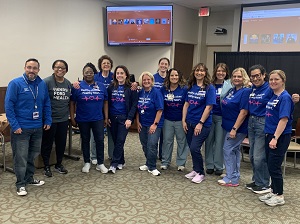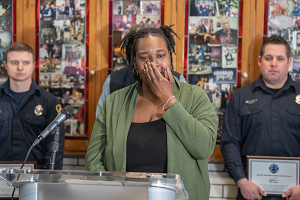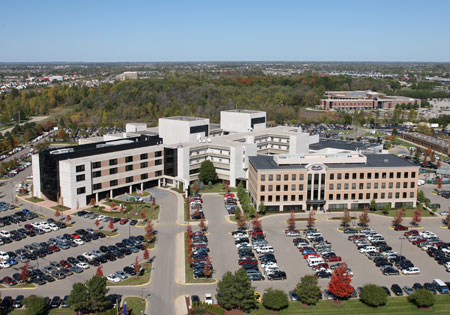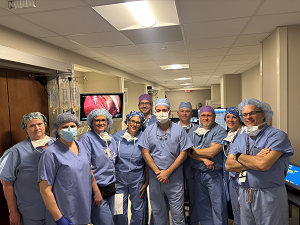Just By Happenstance
William happened to hurt his leg, and it unraveled a series of health obstacles. Now, he's back to playing golf and spending time with his family and friends.
Our cardio-oncologists focus on preventing, monitoring and treating cardiovascular problems in cancer patients and survivors.
Cardio-oncology is an emerging specialty where a team of cardiologists (cardiovascular specialists) collaborate with oncologists in providing the most effective cancer treatment while minimizing acute and chronic cardiovascular side effects. Heart disease and cancer are the top two causes of death in the United States, and recent research indicates that the risk of developing heart disease is much higher in cancer patients than in the general population.
The advances in cancer care in recent decades have increased life expectancy for many survivors. However, the same treatments that have helped many live longer, fuller lives may also increase the risk of developing new heart conditions either during or after cancer treatment. In addition, some people with newly diagnosed cancer may have existing heart problems that need to be managed while undergoing cancer treatment.
Our cardio-oncologists work closely with specialists in Henry Ford Cancer to determine if you would benefit from a cardio-oncology consultation. You’re most likely to get referred to our cardio-oncology program if:

William happened to hurt his leg, and it unraveled a series of health obstacles. Now, he's back to playing golf and spending time with his family and friends.
Not all chemotherapy, immunotherapy and radiation therapies cause damage to the heart. If you have blood, breast, kidney or lung cancer, to name a few, you may need treatments that have a higher risk for cardiotoxicity. However, your Henry Ford oncologist will discuss this with you and ensure that you understand your specific treatments and any risk you may face for heart damage, before beginning treatment.
Whether you have an existing heart condition or are at an increased risk for developing one, our team works in every way to ensure you can undergo your cancer treatment with the fewest heart- and vascular-related side effects. Our role is to ensure that you can get the most effective cancer care while minimizing heart damage. Your cancer treatment is always the primary focus, and we work with your oncology team to plan your cardio-oncology visits around your other treatments.

Women may delay getting help when having a heart attack - partially because symptoms can be more subtle than expected. Learn about the signs and what to do.

A cancer doctor outlines when you should get screened for five common types of cancer.

The stress your body undergoes while trying to fight off common respiratory viruses – like colds, the flu or COVID – can have lasting effects on your heart.

Testing C-reactive protein (CRP) levels can provide clues to chronic inflammatory processes, like heart disease or autoimmune diseases, that can put stress on your body’s vascular system over time.




Join us each Tuesday for Open Studio, a free-of-charge art therapy group available to cancer patients and survivors where you can spend some...
Join us each Wednesday for Creative Healing, a free-of-charge art therapy group available to cancer patients and survivors identifying as women....
Join us each Tuesday for Open Studio, a free-of-charge art therapy group available to cancer patients and survivors where you can spend some...
Join us each Wednesday for Creative Healing, a free-of-charge art therapy group available to cancer patients and survivors identifying as women....
We use cookies to improve your website experience. By using this site, you agree to our Terms of Use. Read our Internet Privacy Statement to learn what information we collect and how we use it.